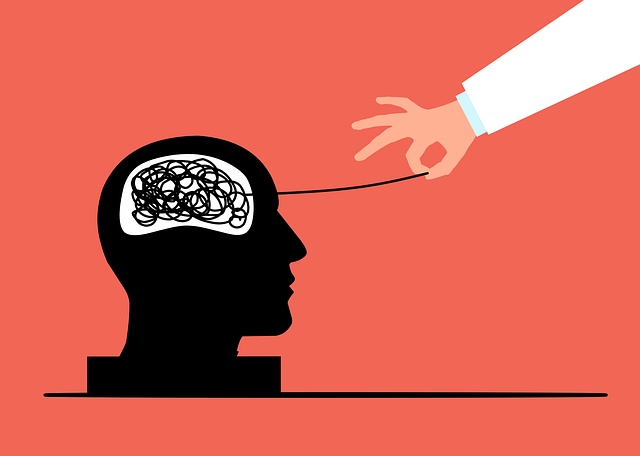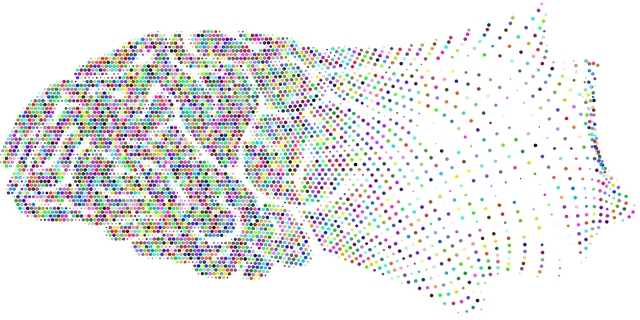Lafayette Dissociative Disorder Therapy offers a holistic approach to trauma support, focusing on integrating fragmented memories and identities through tailored techniques in a safe, culturally sensitive space. This patient-centric process incorporates journaling exercises for mental wellness and stress management. By addressing emotional intelligence and empowering individuals with coping tools, the therapy promotes resilience and long-term emotional well-being, aiming to prevent re-traumatization. An inclusive environment fosters understanding and acceptance, utilizing evidence-based practices like CBT and EMDR to manage trauma symptoms effectively.
In the aftermath of trauma, accessing effective support services can be transformative. This article explores Lafayette Dissociative Disorder Therapy (LDDT), a comprehensive approach to addressing complex psychological wounds. We delve into the identification of trauma and its profound impact on individuals, highlighting the critical role of support services in the recovery process. Furthermore, it examines strategies for creating inclusive therapy environments and provides resources for long-term trauma support, with a specific focus on LDDT techniques.
- Understanding Lafayette Dissociative Disorder Therapy: A Comprehensive Approach
- Identifying Trauma and Its Impact on Individuals
- The Role of Support Services in Trauma Recovery
- Creating an Inclusive and Effective Therapy Environment
- Resources and Strategies for Providing Long-Term Trauma Support
Understanding Lafayette Dissociative Disorder Therapy: A Comprehensive Approach

Understanding Lafayette Dissociative Disorder Therapy is essential for comprehensive trauma support. This approach recognizes the complex nature of dissociative disorders, which often develop as a coping mechanism in response to traumatic events. By delving into the patient’s history and experiences, therapists aim to help individuals integrate fragmented memories, emotions, and identities. This process involves various techniques tailored to each client’s unique needs.
Lafayette Dissociative Disorder Therapy emphasizes cultural sensitivity in mental healthcare practice, ensuring that treatment aligns with the individual’s cultural background and beliefs. The goal is to foster a safe and supportive environment where patients can develop coping skills for managing dissociation and enhancing their overall mental wellness. This may include recommendations for journaling exercises as part of a holistic mental wellness routine, allowing individuals to track their progress and gain insights into their experiences.
Identifying Trauma and Its Impact on Individuals

Trauma, a profound emotional response to distressing events, can leave individuals grappling with a myriad of symptoms that affect their daily lives. Identifying trauma is a critical first step in providing effective support. Signs of trauma may manifest as flashbacks, nightmares, intense emotions, and avoidance behaviors—all of which significantly impact an individual’s mental health and overall well-being. For instance, those suffering from dissociative disorders, like Lafayette Dissociative Disorder Therapy focuses on, often experience a disconnection from their thoughts, feelings, and surroundings, hindering their ability to function normally.
Understanding the profound effects of trauma is essential, especially in recognizing its impact on emotional intelligence—the ability to recognize and manage one’s own and others’ emotions. Effective support services should aim to enhance emotional intelligence by teaching individuals tools for mood management and fostering a sense of agency over their mental health. By incorporating mind over matter principles, these services can empower people to navigate the aftermath of trauma, promoting resilience and recovery.
The Role of Support Services in Trauma Recovery

Trauma recovery is a complex process that requires specialized care and unwavering support. Support services play an indispensable role in helping individuals navigate their healing journey, especially those dealing with disorders like Dissociative Disorder, where memories and emotions can be fragmented. These services provide a safe space for expression, offering therapy sessions tailored to address the unique needs of each client. Lafayette Dissociative Disorder Therapy, for instance, focuses on integrating disconnected aspects of the self, fostering a sense of wholeness and stability.
Beyond individual therapy, support services encompass educational programs designed to enhance mental wellness awareness. Mental Health Education Programs can empower individuals to recognize trauma’s impact and develop coping strategies. Incorporating practices like journaling, a powerful Mental Wellness Journaling Exercise, allows people to process their experiences, track progress, and cultivate self-compassion—all vital components in the quest for holistic healing and improved mental health.
Creating an Inclusive and Effective Therapy Environment

Creating an inclusive and effective therapy environment is paramount when providing support for individuals dealing with trauma, such as those seeking Lafayette Dissociative Disorder Therapy. This involves fostering a safe space where clients feel understood and accepted, regardless of their background or experiences. It’s about more than just physical surroundings; it encompasses the therapeutic relationship, ensuring therapists approach each session with empathy and cultural sensitivity. An inclusive setting encourages open communication, allowing clients to process and share their stories freely.
Effective therapy environments also prioritize evidence-based practices and tailored interventions. This includes incorporating techniques like cognitive behavioral therapy (CBT) and eye movement desensitization and reprocessing (EMDR) to help clients manage symptoms of trauma. Additionally, organizations offering stress management workshops and anxiety relief programs contribute to a holistic approach, addressing not just the symptoms but also the underlying causes of distress. Mental illness stigma reduction efforts within these spaces further empower individuals to seek and receive the care they need without fear of judgment or ostracization.
Resources and Strategies for Providing Long-Term Trauma Support

In providing long-term trauma support, a multifaceted approach that combines specialized therapy and holistic emotional well-being promotion techniques proves instrumental. Lafayette Dissociative Disorder Therapy, for instance, offers targeted interventions tailored to address complex trauma responses such as dissociation. This type of therapy fosters a safe space where individuals can process traumatic memories, integrate fragmented aspects of their selves, and develop coping skills that enhance resilience.
Complementing these strategies, Compassion Cultivation Practices and Coping Skills Development play pivotal roles in trauma recovery. Cultivating compassion towards oneself and others creates a supportive inner environment, encouraging individuals to face challenges with increased emotional agility. Simultaneously, equipping individuals with effective coping skills enables them to manage stressors and prevent re-traumatization, fostering a sense of control and empowerment.
In conclusion, trauma recovery is a complex journey that requires a multifaceted approach. By understanding the profound impact of trauma and its manifestation in individuals, we can create supportive environments that foster healing. Implementing evidence-based practices like Lafayette Dissociative Disorder Therapy and ensuring access to comprehensive resources are essential steps towards long-term support. An inclusive therapy setting that caters to diverse needs facilitates effective healing, ultimately empowering those affected by trauma to rebuild their lives.














